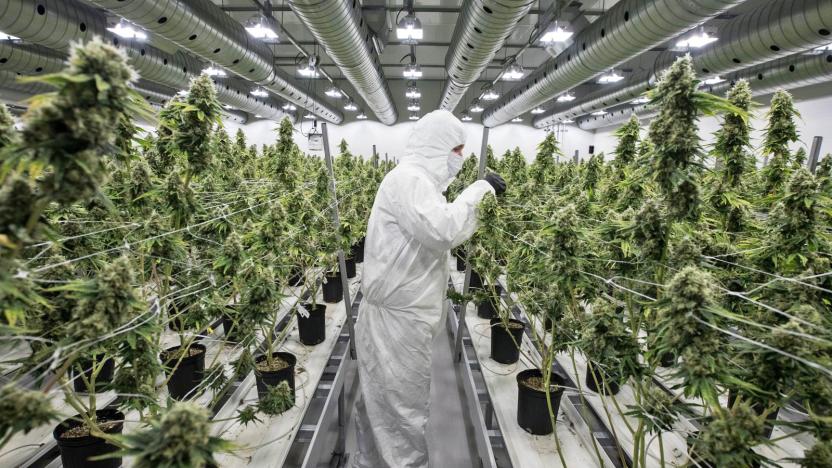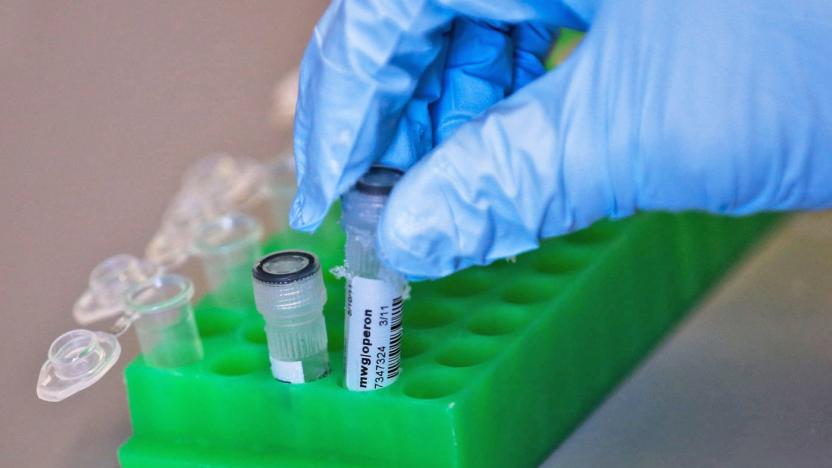NationalAcademyOfSciences
Latest

Federal report says humans are the cause of climate change
Today, over a dozen federal agencies released the Climate Science Special Report, which is a product of the National Climate Assessment -- a congressionally mandated review that takes place every four years. In it, hundreds of scientists from dozens of government agencies and academic institutions present evidence that supports the existence of a human-caused warming planet and all of the consequences that come with it. "This assessment concludes, based on extensive evidence, that it is extremely likely that human activities, especially emissions of greenhouse gases, are the dominant cause of the observed warming since the mid-20th century," the report stated. "For the warming over the last century, there is no convincing alternative explanation supported by the extent of the observational evidence."

National Academy of Sciences endorses embryonic engineering
The next generation of humans may well be genetically modified. The National Academy of Sciences on Tuesday issued a 216-page report endorsing human germline modification in the future, but only in certain cases that would otherwise result in children being born with serious genetic diseases.

Massive meta-study confirms the health benefits of cannabis
After digging through more than 10,000 separate clinical studies, the National Academies of Science, Engineering, and Medicine on Thursday issued a groundbreaking, 400-page report on the potential benefits and detriments posed by cannabis use. The biggest revelation: cannabis has verifiable medicinal uses, which are backed by large amounts of high-quality science. This could spell the end for weed's categorization as a Schedule I narcotic.

Gene-edited organisms aren't ready for the real world
Gene editing holds the promise of eliminating diseases and perfecting humanity, but is it truly ready for real life? Not by a long shot, if you ask the National Academy of Sciences. It just issued a report warning that organisms modified with gene drives (that is, genetic additions meant to propagate through reproduction) "are not ready" to be released in the wild. We don't understand enough about how they work, the report says, whether it's their inner workings, their ethical questions or their impact on the environment.

ICYMI: How cancer travels, true hoverboard and more
#fivemin-widget-blogsmith-image-226789{display:none;} .cke_show_borders #fivemin-widget-blogsmith-image-226789, #postcontentcontainer #fivemin-widget-blogsmith-image-226789{width:570px;display:block;} try{document.getElementById("fivemin-widget-blogsmith-image-226789").style.display="none";}catch(e){}Today on In Case You Missed It: MIT researchers discovered that cancer cells can unclump to squeeze through teeny capillaries, then reassemble as cancer clumps on the other side. Zapata Racing has a prototype of a real hoverboard that can fly just like the Green Goblin's, but only for 10 minutes at a time. And a smart toy for pets called PlayDate will let you play with your cat or dog remotely, by moving the ball around through an app and watching your pet's reaction. We also wanted you to see the video of some construction equipment in a Transformers-like battle, after the humans operating them got into some sort of argument and decided to settle it like Gladiators of road construction. As always, please share any great tech or science videos you find by using the #ICYMI hashtag on Twitter for @mskerryd.

US medical panel recommends 3-person embyronic testing
The US National Academy of Medicine recommended Wednesday that the Federal Drug Administration should approve clinical trials for so-called "3-parent embryos." It's a controversial procedure that would transfer mitochondria from a healthy, secondary human egg donor into a fertilized diseased embryo.

NASA going to the Sun, Jay Leno readies 'hot' jokes for coming years
Our favorite aerospace exploration organization will finally fulfill a 1958 recommendation from the National Academy of Sciences by sending the Solar Probe Plus into the Sun's atmosphere. It will be the first time any craft visits a star -- previous data have been collected from at least millions of miles away. Why the personal visit? Two main reasons: to determine why the sun's corona is millions of kelvin hotter than its visible surface, and to learn more about how that solar wind we've been hearing so much about lately gets accelerated. Look out for answers to these and other burning questions (we're getting started early!) sometime before 2018.

Fancy brain scans can detect when the mind wanders
What were we talking about again? Oh, that's right. Brains. Wonderful, delicious... brains. A new study published in the Proceedings of the National Academy of Sciences shows that researchers can track grey matter for the patterns that precede careless errors. Apparently there's a detectable activity shift when your brain switches to auto pilot -- which can happen as much as half a minute before you screw up. The hope behind the research is to be able to track brain activity and alert users who are headed off the tracks. The technology could reduce work slip-ups, improve driving, or at least help you know when to take a nap or switch activities to keep engaged. But seriously, what were we just talking about?





